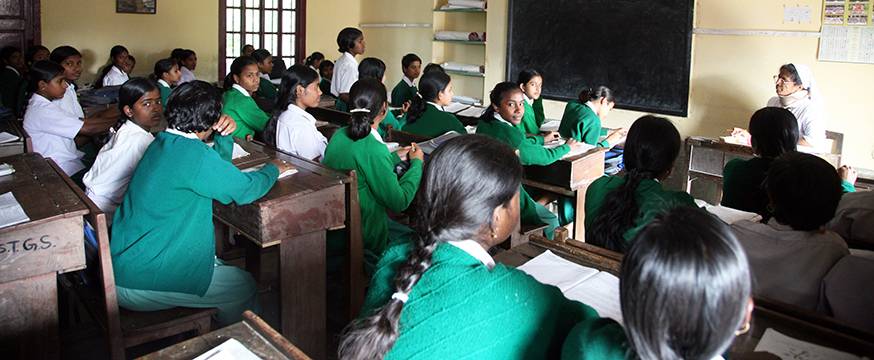
National assessment in India
Research 11 Mar 2014 3 minute readA large-scale and long-term national assessment program is now underway in India. As Maurice Walker explains, the project is expected to inform policy and program delivery in India.
ACER is working with India’s National Council of Educational Research and Training (NCERT) to design, implement and report a new National Achievement Survey of students in Class X (Year 10).
The National Achievement Survey – conducted under the auspices of the Rashtriya Madhyamik Shiksha Abhiyan program of the Ministry of Human Resource Development (MHRD) to enhance access to and improve the quality of secondary education – is monitoring student progress in terms of the National Curriculum Framework in India.
ACER’s work with NCERT to design, operationalise and implement the national assessment, and to analyse and report on the data that result from it, will facilitate comparisons of the learning outcomes of Class X students across Indian states. The goal is to estimate student outcomes in a way that informs educational policy and practice. As a recent review by ACER and partners of the impact of national and international assessment programs concluded, policy makers are more likely to use data from an assessment to inform educational policy when the assessment prioritises their policy concerns and when the assessment is technically robust, and produces reliable and valid data and ensuing analyses.
To deliver an assessment on the scale of the National Achievement Survey – involving testing in multiple languages and calling on liaison with policy makers and stakeholders across 28 states and seven union territories – ACER is tailoring support to complement NCERT’s existing capacity.
ACER’s involvement includes:
- supporting NCERT to develop an assessment framework, which will specify the underlying content and scope of the assessments in terms of the National Curriculum Framework;
- reviewing and, where necessary, supplementing the pool of assessment items already developed by NCERT;
- mapping the items to the assessment framework, and developing items to bridge any identified gaps;
- supporting NCERT in the test design;
- supporting NCERT in the population definition, sample design and implementation;
- supporting and building NCERT’s statistical capacity development in terms of the scaling of data and data analysis;
- supporting NCERT in its design of field operations; and
- providing technical advice and advice on quality assurance procedures as NCERT conducts field operations.
It is envisaged that the National Achievement Survey will provide policy makers with information on the impact of gender, socioeconomic status and rurality on student outcomes. The outcomes will also be compared across states and languages. ACER and NCERT will undertake an analysis of policy options, working with senior bureaucrats and government ministers to unpack the policy implications of the assessment results and to address issues that should inform the development of subsequent cycles of the assessment program.
With the field trial underway from March, to be followed by the main survey from November, ACER and NCERT expect reports from the first National Achievement Survey to be completed in mid-2015.